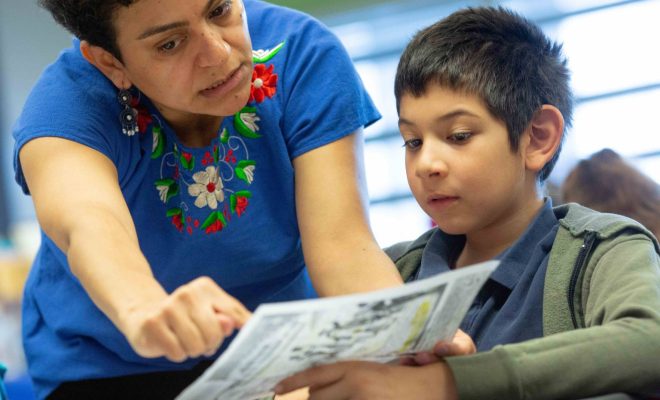Why Being a Teacher is So Difficult Right Now

Teaching is a valuable and rewarding profession, but it can also be tiring and exhausting. Teaching is arguably more difficult now than it has ever been for a variety of reasons, including learner behavior, fast-changing technology, and poor compensation. This essay will look at some of the reasons why teaching has become such a difficult profession.
Shootings at schools
Gun violence by students or by others outside of schools is a serious and regular threat to students and educators. School shootings are on the rise, and many educators feel frightened on the job every day. There is yet to be an effective intervention to prevent gun violence in schools, which has caused many instructors to shift schools or change the grade level at which they are willing to teach.
Disturbing conduct
In some schools, student behavior can be a severe issue for educators. While the majority of students are well-behaved, a small number of students who are violent, aggressive, noisy, and disruptive jeopardize not only educators’ ability to educate but also the safety of educators and other students. There are frequent allegations of students physically assaulting instructors, yet educators are afraid to defend themselves for fear of being dismissed and having their teaching license suspended or revoked.
Pay is low.
Low compensation affects educators in a variety of ways, making it harder for them to do their work efficiently. Many educators are obliged to work second or even third jobs just to make ends meet, so they spend more time outside of the classroom work. This exhausts educators and leaves them with little time to complete work at home.
Technology
While technological advancements can surely aid learning, it is difficult for educators to stay up with constant change. Schools have come a long way from the days of chalkboards. Educators must now learn how to use Smartboards, various types of computers, calculators, and other devices. Educators must also adapt to evolving electronic communication methods with students, parents, administration, and other teachers.
Cell phone use in the classroom is also a significant barrier for educators to overcome. Learners of all ages now have their mobile phones, making it challenging to enforce cell phone policies, keep students on target, and avoid cheating through technology.
Work-life balance
Even if educators just have one job, it is extremely difficult to strike a balance between life and work. Many instructors believe they are personally responsible and invested in their student’s achievement, and they devote extra unpaid time to guaranteeing their success. Many educators stay late after a typical workday to tutor students, grade papers, or prepare for the next day because they are constantly with students and don’t have time during the school day to take care of these obligations. Educators frequently carry work home with them, so they never truly get a break.
These are just a handful of the many challenges that educators encounter. To execute their jobs effectively, educators require additional assistance from administrators, legislators, and parents. The more society spends on educators, the more it invests in children and future generations.
With so many challenges and pressures facing educators every day, students and parents alike should always remember the kindness of teachers and learn to show appreciation and affection for these educators. There are many ways to show appreciation to teachers, from verbal thanks to small homemade gifts filled with gratitude, such as custom hard enamel pins with teachers’ names and custom lanyards with custom stickers encouraging teachers during International Teacher’s Day and the annual Teacher Appreciation Week. Regardless of the method, students and parents should show more appreciation for their teachers.






